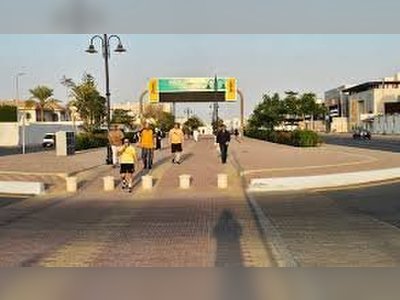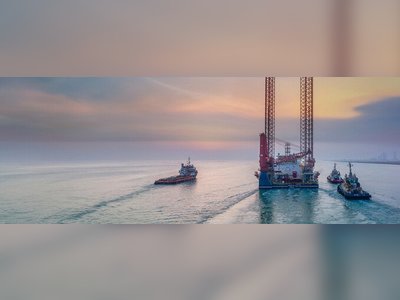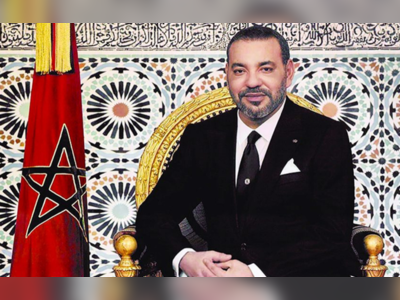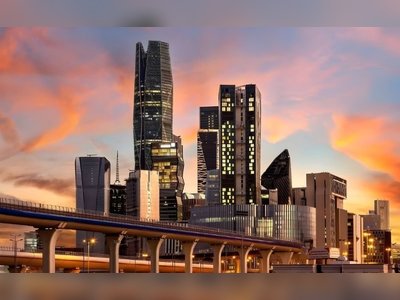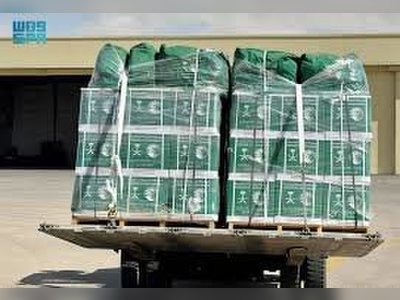
Turkey’s Gaziantep goes from a refuge to a site of devastation
When Kasem al-Abrash felt the ground shaking beneath his feet, his mind immediately went back to his hometown of Idlib in northern Syria.
He had fled for his life from there to Gaziantep, across the border in Turkey, in 2020.
But on Monday morning, like millions of people across southern Turkey and northern Syria, al-Abrash woke up to the heavy shakes of a 7.8 magnitude earthquake, which hit the wider region and left death and devastation in its wake.
“I realised, oh no, I’m actually supposed to be in a safe space, in Turkey,” al-Abrash said.
He immediately ran down the building as parts of his apartment collapsed.
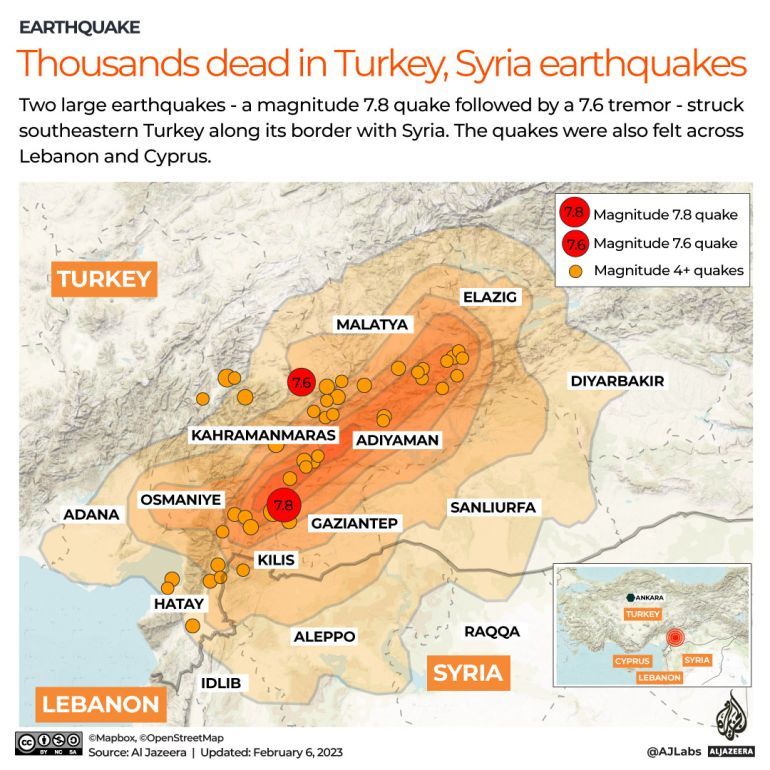
He is not the only one to have arrived in Gaziantep seeking refuge, only to be cruelly surprised by Monday’s earthquake.
When 21-year-old law student Karina Horlach woke up in the early hours of the morning to her bed heavily shaking, she had flashbacks from the last time she was in Ukraine.
“It’s February, and exactly one year ago I was woken up by that same bed shaking,” Horlach told Al Jazeera, with panic in her voice. “But then, I realised I wasn’t in Ukraine. It took me some time to understand what was going on.”
Horlach is enrolled in an Erasmus student programme in Gaziantep.
She was given the opportunity to escape from the war in her own country and settle as a temporary refugee in a supposedly safer environment.
She never expected to get post-traumatic memories of Kharkiv, her hometown, in the city that has sheltered her for the past six months.
“I thought I was experiencing an air strike again,” Horlach said. “It gave me flashbacks of home.”
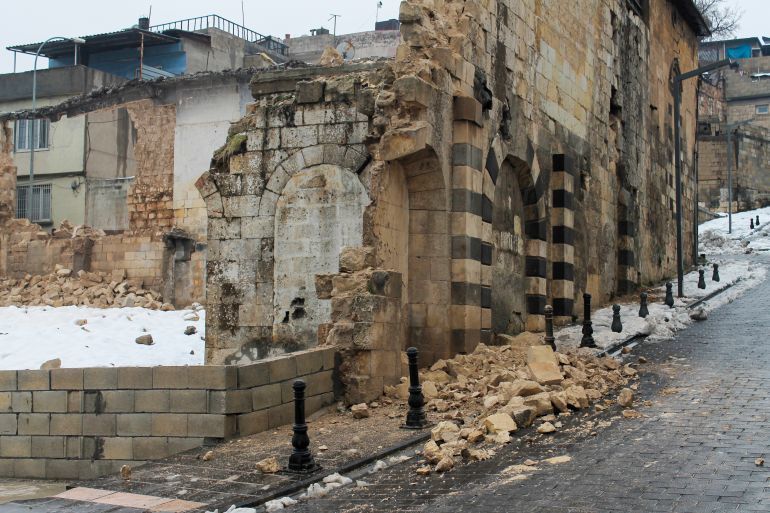 Aftershocks have been felt throughout the day in Gaziantep, one of them almost as powerful as the original earthquake
Aftershocks have been felt throughout the day in Gaziantep, one of them almost as powerful as the original earthquake
Syrian memories
Gaziantep, one of southern Turkey’s major cities, has a population of almost two million people, and between one-quarter and one-third of them are Syrian refugees.
Fifty-year-old Sawsan Dahman lives in the same building as al-Abrash. When it started shaking, she ran down to the street with her family of four children.
She looked desperately to find a safer shelter as the cold air, rain and snow battered her face.
Dahman said that she immediately thought of the big mosque located in 100 Yil Park, a green area near the centre of the city, where she found local Turkish people waiting to help.
She immediately liaised with her Syrian contacts through various WhatsApp groups to inform them of the safe shelter.
“Often, because of language barriers, Arabic speakers here are left behind in emergency situations,” Dahman said. “I wanted to fill that gap.”
Aftershock chaos
In just a few hours, Dahman had become a point of reference for the Syrian community in Gaziantep, as well as women of any background who found themselves alone.
A widow, Dahman has already faced having to take care of her children alone on the journey from her home in Damascus to Turkey.
But as she spoke from the common prayer room in the early afternoon, a big aftershock shook the mosque.
With horror in her eyes, Dahman grabbed her children – aged between 17 and 23 – as flashbacks from the war in Syria began overwhelming her.
For others, it was the more immediate memory of the earlier earthquake that set them running in every direction.
The minaret shook, threatening to fall on the crowd. A child was hit by a car, amidst a rainstorm, and people gathered to help the girl.
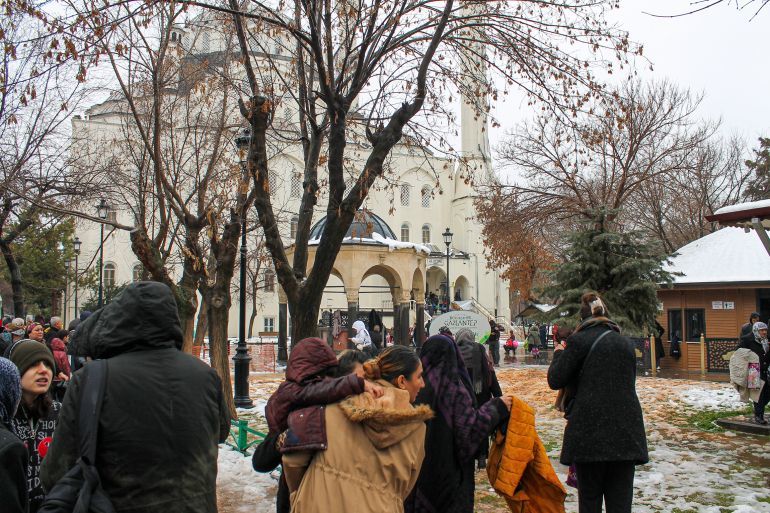 People have gathered in open spaces for shelter as they fear more aftershocks
People have gathered in open spaces for shelter as they fear more aftershocks
Amidst the despair and adverse weather, people have found temporary common shelters where they can, some wrapped in blankets inside improvised tents on park benches. Others took refuge inside cafes – the few that had dared to open – sitting in circles around electric heaters.
Warming his hands around the heater, 24-year-old economics student Izzat Umman thinks of the shock of waking up to his books falling on his head.
“I didn’t know what was going on, I just ran to the streets, seeing other people running,” he said. “We’ve never experienced something like this here. A single minute felt like 15.”
Already battered by the unusually bad weather conditions, Gaziantep was not prepared for such an emergency, he added. “It came so unexpectedly that we’re still in shock.”
As the day went on, the aftershocks did not stop and came unexpectedly, leaving Gaziantep in constant fear of the next quake. The traumatic experience will resonate for many for a long time to come.
Many have now taken to fleeing the city in their cars or buses, with the airport closed.
Walking around the rubble of the buildings and streets he used to know by heart, al-Abrash saw an image his eyes were bitterly familiar with.
“We already had to deal with traumatic experiences from the Syrian conflict. Now that we’re a few kilometres from the border, it seems like history has repeated itself. And we’ll have to confront ourselves with yet another trauma.”

